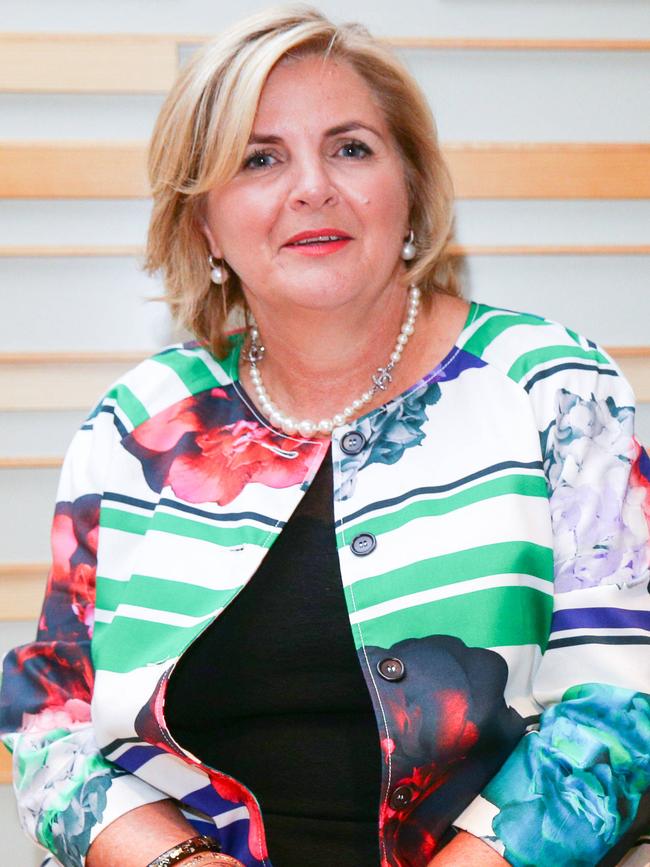Westpac puts its pay offer to a staff vote, marginalising the Finance Sector Union
Westpac is going direct to its employees with a new pay offer in an attempt to break a deadlock with a key union.
Westpac is going direct to about 30,000 employees with a new pay offer in an attempt to break a deadlock with a key union, get staff on board and play down inflationary pressures.
In an email to employees, Westpac’s head of human resources, Christine Parker, said the bank was an at impasse with the Finance Sector Union and wanted staff to vote on a new enterprise agreement (EA).
“We worked hard to reach agreement with the FSU, however we couldn’t get there and the FSU has decided not to support Westpac’s proposed EA. We respect the FSU’s role in the process and their right to have a different view,” she added.
“Something we’re proud of at Westpac is making balanced, sustainable decisions that consider the needs of our people and the business. We’ve worked hard to add to your current benefits and made sure there’s something new for everyone.”
Westpac’s offer for employees earning up to $94,446 in fixed salary includes a 4 per cent pay rise in 2023 and a one-off payment of $1000 late this year.
For those earning fixed pay above that amount but less than $118,057 annually, the bank is offering a 3.5 per cent pay increase in 2023 and a one-off payment of $1000.

The new Westpac EA applies to about 30,000 Australian bank staff.
Stark staff shortages and soaring inflation – which has created a spike in the cost of living – have put salary levels in focus this year. The consumer price index rose in the June quarter, taking the annual increase to 6.1 per cent.
Ms Parker’s email to employees said the bank wanted to take a long-term view, and it provided an assessment over inflation over a multi-year period.
“For the calendar years 2015 to 2021, pay increases for eligible employees covered by ‘Tier 1’ and ‘Tier 2’ increased by 19.75 per cent and 12.75 per cent respectively, with inflation over this time of around 10.9 per cent,” she said.
“The EA also proposes another pay increase at the beginning of 2024, of 3.5 per cent for Tier 1 and 3 per cent for Tier 2.”
But the FSU is pushing Westpac for a 6 per cent pay increase for all employees, given the spike in inflation.
“Westpac has decided to put the proposed EA to a vote in October, despite three major issues remaining unresolved. Westpac workers deserve a pay increase that meets cost of living standards, addresses excessive workloads, and guarantees job security,” said Julia Angrisano, the FSU’s national secretary.
The proposed changes by Westpac give staff a second day of paid culture, lifestyle and wellbeing leave annually. The bank also mentioned the EA would increase paid parental leave and provide “uncapped leave” for those experiencing domestic or family violence.
Commonwealth Bank took a pay offer and EA direct to its employees in 2021, but that expired on June 30 and the bank has now opted to not negotiate with the FSU. It is instead from next month putting through a 4.25 per cent annual pay increase and paying the additional 0.5 per cent rise in the superannuation guarantee for those under the EA. CBA is back paying staff from July 1.
National Australia Bank is also in the throes of negotiating employee pay increases, and is said to want to develop an EA endorsed by the FSU. The bank is offering a 5 per cent annual rise to those earning less than $100,000 in the first year and 4 per cent in the following. For staff earning more than $100,000 the proposed increases are 4.5 per cent and 3.5 per cent respectively.
Westpac said it would provide staff with further information on the proposed EA and the voting process.
For the bank to succeed, more than 50 per cent of employees who vote must endorse the new EA. It would also require approval by the Fair Work Commission.
Westpac, NAB and ANZ rule off their financial year on September 30, while CBA has a June 30 year end.








To join the conversation, please log in. Don't have an account? Register
Join the conversation, you are commenting as Logout